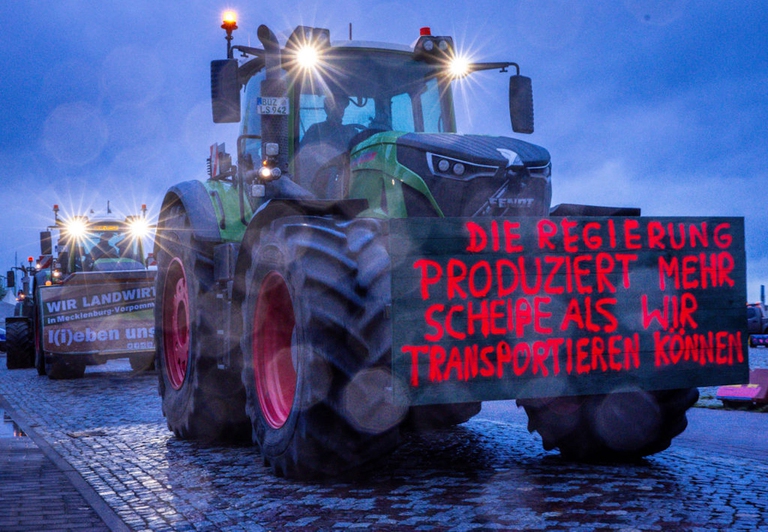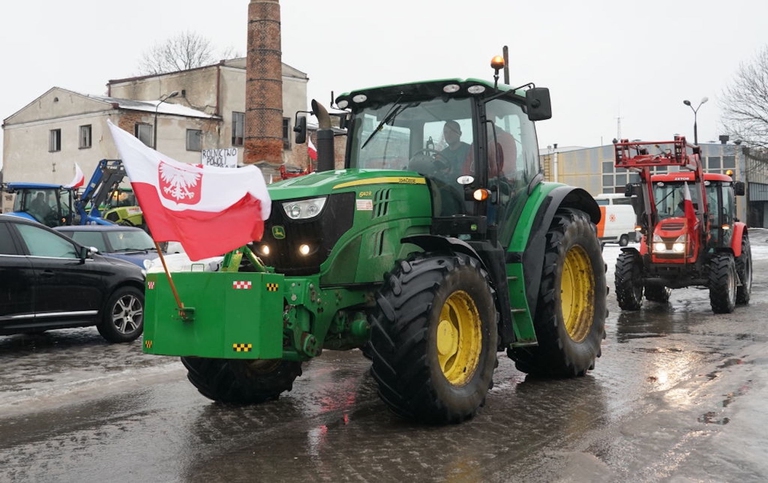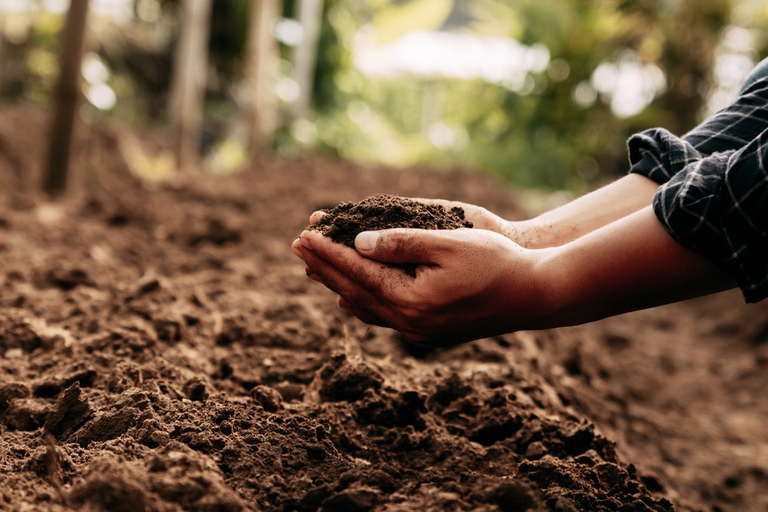https://www.lifegate.it/proteste-agricoltori-europa-green-deal
- |
- In many European countries, farmers have been protesting against national and European policies for weeks.
- Agricultural producers demonstrate against rising fuel and chemical costs, subsidy cuts and bureaucracy.
- For the Cambiamo Agricoltura coalition, discontent must not be associated with environmental policies which, on the contrary, represent part of the solution.
For several weeks the protests of farmers they are shaking theEurope.Demonstrations have been recorded in several countries with agricultural producers protesting against the national policies and Europeans.In a difficult moment for the sector, in which agricultural productivity and farmers' income are increasingly put at risk byincreased costs of fuel and chemicals, come on climate changes and come on ongoing conflicts, producers complain about the distance of political decision-makers from the reality of geopolitical, climatic and economic context which is undermining farms.

Farmers' protests from France to Germany, from Italy to Greece
In Germany farmers blocked several highways and urban centers until they occupied Berlin with 5 thousand tractors to protest against the elimination decided by the government of agricultural subsidies, in particular for the fuel. Unrest also in France with farmers blocking roads demanding administrative simplifications and faster compensation in the event of natural disasters.A woman who was protesting was killed during the demonstrations, hit by a car in the south-west of the country. In Italy the protests are animated by autonomous farmers gathered in the Committee of Betrayed Farmers:they demonstrate against the government, the European Union, taxes, low-cost imports, banks, unions and large agricultural confederations, but also against cultured meat and insect flours. In Poland farmers protest against the uncontrolled influx of goods from Ukraine;demonstrations are also recorded in Romania And Greece, the latter particularly struck by fires and floods in summer and autumn.

Manure vs paint:the protests for and against oil
As an extreme protest in France, farmers have come several times to smear with manure the institutional buildings, a gesture which, with different, almost opposite purposes, reminded us of the activists of the movement Latest generation, which are identified by smearing with washable paint monuments and works of art as a sign of protest against the fossil fuels.
Strategic dialogue on the future of agriculture begins
On January 24, delegations of farmers from many countries arrived at Brussels where on January 25th, the strategic dialogue on the future of agriculture. “You deserve fair remuneration for your work,” he told farmersas president of the commission Ursula von der Leyen."The Our goal is to support your livelihoods, and ensure Europe's food security.Each of us has a role to play in this regard."He then added:“We have suffered from high inflation for both agricultural inputs and food.But the European agri-food sector has shown remarkable resilience.Furthermore, we are all making a huge effort to contribute to the collective goals of the European Green Deal.Because we all live with nature and from nature.And while we don't always agree on all issues, we all agree that the challenges are increasingly greater.Whether it's foreign competition or excessive domestic regulation, climate change, biodiversity loss or population decline."

#Let'sChangeAgriculture:“The objectives of the Green deal are not the cause, but the solution to farmers' protests”
Regarding the Green deal, the associations of coalition #CambiamoAgricoltura they expressed profound disagreement towards whom exploits the protests of farmers to attack the objectives and commitments set out in the strategies of European green deal, especially strategy Farm to Fork and strategy Biodiversity 2030.Even more so since, they point out, these policies have effectively been sabotaged from the latest decisions of the European institutions:“The European Parliament's vote against the Sur Regulation for the reduction of the use of pesticides, the elimination of cattle breeding from European legislation on industrial emissions, the liberalization of new GMOs, the weakening of the European Regulation on the restoration of nature for agricultural areas and finally the decision of the EU Commission to renew the use of glyphosate for another ten years, are decisions that have reduced the objectives of the Green deal strategies to mere statements of principle, without any concrete implementation in the primary sector of agriculture and of zootechnics".
The paradox is then made even more evident, according to the coalition, by the outcome of the reform of CAP 2023-2027 which confirmed its support forintensive agriculture and animal husbandry dependent on oil and gas, through subsidies that promote the use of fertilizers e pesticides of synthesis and which favor large agricultural companies to the detriment of small ones, with over 80 percent of CAP funds still being distributed to 20 percent of European agricultural companies.
The causes of the crisis in European agriculture, according to the associations, should instead be sought in the dependence on fossil resources, in the volatility of production prices and in financial speculation:“The increase in production costs, determined above all by the increase in energy costs and therefore of diesel, fertilizers and synthetic chemical pesticides, has essentially penalized farmers, while the agro-industry and large-scale distribution have managed to better protect their economic results.The crisis situation for farmers has also been worsened by inflation and the measures taken to combat it;confirming for farmers the role of the weak link in the agri-food chain".

The solution therefore cannot be the cancellation of the rules and commitments for the protection of the environment and the postponement of the indispensable ecological transition of agriculture.On the contrary, one partial response for these problems is indicated precisely by the European Farm to Fork and Biodiversity 2030 strategies which provide for the growth of agricultural surfaces dedicated toorganic farming, whose production costs are linked to a lesser extent to the variability of oil and gas costs, as well as being more profitable for farmers.
